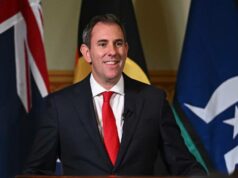Two-state solution with direct Negotiation only path to peace

The assault from Gaza into Israel by terrorists of Hamas has generated intense heat on the international diplomatic front.
The brutal killings leading to appalling loss of life, suffering on hapless Israeli citizens has triggered an emotional wave of human grief around the world. The angry Israeli response to it, fully understandable, has led to not only elimination of hundreds of Hamas terrorists but also scores of Palestinian civilians, which may not be right.
The immediate reaction has been to apportion blame, followed rapidly by an all-too-natural desire to respond by exacting revenge. But this is the path only to further bloodshed and loss. As unimaginably painful as it must be, and counter-intuitive as it must seem, the tragedy which is still unfolding in Gaza as a horrified world looks on should be seized as an opportunity to seek peace, even as the violence escalates.
Almost without exception, governments have been quick to support Israel: Terrorism in any form must be opposed and the World has reacted rightly. However support and sympathy for the terrorist carnage with overall support for Israel over Palestinian cause will further add fuel to fire in this complex conflict.
Many like Govt of India, with the foresight to look ahead have called for a ceasefire, and declare that the only peaceful resolution to this decades-long conflict is the two-state solution between Israel and Palestine.
Sadly, such a course of action currently seems unlikely, at least for present, as Israel is determined to prosecute its self-declared “war” on the strip of coastal land which more than 2 million Palestinian civilians call home. It goes without saying that Palestinians should have exercised more control on Hamas. Similarly, as long as there are those who deny Israel’s right to exist, there will be huge barriers to peace. However, the alternative – perpetual war – is just as unthinkable.
Already, the bloody toll of the current conflict looks like surmounting the slaughter of thousands during the Gaza Wars of 2008-09 and of 2014. Hamas has rained rockets on Israel and its fighters have struck with terror and ruthlessness; Israel is responding with an apparent search-and-destroy operation which involves amassing hundreds of thousands of troops ahead of a likely ground invasion.
Yet except India, nobody is calling for the fighting to stop. Peace must come first to best prevent further killing, accountability can follow in time. Most voices in the Western world are currently focused on instant responses which appear to endorse retaliation, when what is needed is carefully considered reflections which seek to resolve disputes, not prolong them.
UN’s response has been unequivocal, calling for an immediate ceasefire and an end to fighting. Apportioning blame at this stage is an impediment to peace. Escalation could further destabilize an already unsteady region. UN has called upon all parties involved to put down their weapons and talk.
India, a very close friend of Israel has openly condemned this terror attack on Israel and will stand by it under all circumstances. However for a permanent solution India has always advocated the resumption of direct negotiations towards establishing a sovereign, independent and viable State of Palestine living within secure and recognised borders, side-by-side at peace with Israel.
In June, Chinese President Xi Jinping had called for an international peace conference on the Israel-Palestine conflict and called for Palestine to become a full member of the UN.
Washington has reacted to the latest Israel-Palestine crisis by sending the aircraft carrier Gerald R Ford steaming toward the eastern Mediterranean, along with five guided missile destroyers and cruisers. US Defense Secretary Lloyd Austin ordered USAF fighter jets into the region “to bolster regional deterrence efforts” and spoke of Washington’s “ironclad support” for Israel. Secretary of State Antony Blinken made similar assurances, and President Joe Biden delivered a renewed, unequivocal, American commitment to Israel as “rock solid and unwavering.” All of this is in addition to the US’ promise, made by Barack Obama in 2016, for an overall package of $38 billion military aid to Israel between 2019 and 2028.
In Europe, there was confusion as one official said the EU had frozen 691 million euros ($730 million) in development aid to Palestinians, even though this would be a collective punishment inflicted on the civilians – a war crime – only for another official to deny the payments were being suspended. Separately, Germany announced that German financial aid to the Palestinians would be reviewed, while Austria said that payments had been suspended. In the UK, Prime Minister Rishi Sunak promised “steadfast support” and military, diplomatic, intelligence or security support. In Canada, Prime Minister Justin Trudeau declared “We stand with Israel,” as did Germany’s Chancellor Olaf Scholz and French President Emmanuel Macron. None of this suggests that any of these countries is looking further than the ends of their noses.



